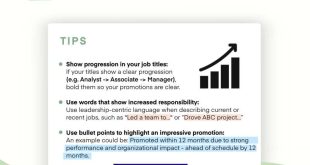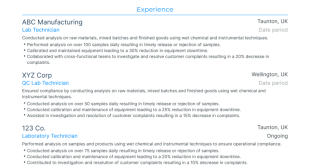How To Become Tax Preparer Certified – This article was co-authored by Cassandra Lenfert, CPA, CFP®. Cassandra Lenfert is a Certified Public Accountant (CPA) and Certified Financial Planner (CFP) in Colorado. She advises clients nationwide through her tax firm, Cassandra Lenfert, CPA, LLC. With over 15 years of tax, accounting and personal finance experience, Cassandra specializes in proactive tax planning with individuals and small businesses to help them save more money to achieve their goals. She received her bachelor’s degree in accounting from the University of Southern Indiana in 2006.
There are 8 references in this article, found at the bottom of the page.
How To Become Tax Preparer Certified
When an article receives enough positive comments, readers will mark it as approved. This article received 23 testimonials and 96% of the readers who voted found it to be helpful. Useful, get it as a reader’s approval rating.
Tax Preparation Course Ebook
Being a tax preparer can offer a rewarding and well-paying job. For example, the average tax preparer in 2018 was $68,090.
[1] X Reliable source US Bureau of Labor Statistics United States government agency that collects and reports data related to labor at the sourceYou can make more money if you do tax planning and more detailed solutions, such as becoming a certified public accountant (CPA) or tax attorney. In addition, tax preparers deal with a large public sector, and in most cases, can return large refunds or refunds to their clients from previous years. Regardless of the state’s economy, people have few jobs because they have to pay taxes every year.
While becoming a tax preparer may seem like it requires a lot of education and training, almost anyone can qualify within a few months.
What Is A Tax Advisor? Duties, Pay, And How To Become One
This article was co-authored by Cassandra Lenfert, CPA, CFP®. Cassandra Lenfert is a Certified Public Accountant (CPA) and Certified Financial Planner (CFP) in Colorado. She advises clients nationwide through her tax firm, Cassandra Lenfert, CPA, LLC. With over 15 years of tax, accounting and personal finance experience, Cassandra specializes in proactive tax planning with individuals and small businesses to help them save more money to achieve their goals. She received her bachelor’s degree in accounting from the University of Southern Indiana in 2006. This article has been viewed 323,595 times.
To become a tax preparer, apply for a job offering tax preparer training or enroll in a training program offered by the Board of Accountancy and Taxation. After training, request a preparer identification number using the IRS website. Then, to get certified, register in your state by searching for “tax preparer registration” and the name of your state. After receiving the certificate, you can work for a tax preparation company or start your own business. Continue reading to learn more about tax training and higher education options. Whether you are thinking of becoming a sole practitioner or starting a large practice, this page provides a detailed explanation of the steps you can take to start your own professional tax practice to make the process easier for you.
Once you have decided on the legal entity for your business, you can register your business with your state. A common way for small businesses to register is by filing a Doing Business As (DBA) name with their state. This can be an easy way to register in your state without creating a formal business structure for your company. Another option is to set up a limited liability company (LLC) or corporation for your business, which will register your business with the state. Contact your state government for more information about registration in your state.
Certain types of businesses may require a federal Employer Identification Number (EIN). While some states allow you to apply for EE as part of the business registration process, others require a separate application.
Top 11 Accounting Taxation Courses In India
Click here to see if you need an EIN. Some counties may require additional registration, permits or licenses, so please contact your county clerk for more information.
The IRS requires all tax preparers or companies to file 11 or more returns electronically. Before you can file tax returns electronically, you or your organization must become an IRS-approved electronic file provider and apply for an Electronic Filer Identification Number (EFIN). You will need to complete a separate EFIN application for each location where your business files electronic returns. When you submit your application to become an authorized e-file provider, non-certified professionals must submit fingerprints to the IRS so they can handle eligibility verification. This may include credit checks, criminal history checks, tax compliance checks, and checks for non-compliance with IRS email requirements. This process can take up to 45 days. There is no fee to obtain an EFIN.
Create an IRS e-Services account and complete your e-file application online to begin the application process. First, you provide credentials to your organization. Next, you enter information about each key and responsible authority in your organization. You choose your e-file provider. If you are a return preparer and need to e-file for clients, choose Electronic Return Generator or ERO. If the principal or responsible officer is a certified or licensed person, such as an attorney, CPA, or registered agent, they must submit current professional status information. All other individuals must provide fingerprints to the IRS. You can find the latest information about the EFIN application process on the IRS’s “Become an Authorized E-Filer” webpage.
It should be noted that some states require e-filers to submit separate registration requests to e-file individual or business tax returns. Check with the relevant state tax agency to understand e-file requirements at the state level.
How To Become A Tax Preparer In Canada
Anyone who prepares or assists in the preparation of a federal tax return must have a Tax Preparation Identification Number (PTIN). The IRS issues PTINs to anyone authorized to prepare and defend tax filings for individuals and corporations. PTINs expire and must be renewed annually. If you are starting a company, remember that the PTN cannot be shared by the company. Each paid preparer must have their own PTIN before they can help prepare federal tax returns.
The next challenge is deciding how your business will make money or what your business model will be. In addition to your tax expertise, do you offer year-round consulting and/or accounting services to your clients, or are you a mostly seasonal tax practice? In your tax practice, do you focus on business taxes, personal taxes, or both? And, if you could choose, what kind of customers would you want? If you provide business tax services, you can specialize in a certain industry or business. If you provide personal tax services, will you focus on high net worth individuals, self-employed clients, or perhaps target your services more broadly?
This is the time to decide where your practice will be located. Do you open a standalone office, share office space, work from home, or use a virtual office?
Deciding on these elements of your business model is important so that you can choose the right tax software and tools as well as marketing tools for your business.
Income Tax Preparer
Use this tax payment wizard to estimate the cost and price of your tax services. The wizard will give you an average price for a tax preparation service with a similar name and years of experience, although you may want to adjust your price based on other factors, including the complexity of your client profile, business costs, your pricing strategy, and the cost of an additional year of service.
If you are not sure which model is best for you and your practice, talk to our experts for advice and tips. Making these decisions quickly will help you make other important decisions down the road.
Prospective clients will appreciate the credentials, and there are many education and certification options for you and your new tax business, including certification in the annual IRS program, education and certification from the Income Tax School, and the IRS Enrolled Agent Program for preparers who plan to become agents. you Public accounting certification for clients in the exam, or for accountants who plan to issue financial statements.
Some states, including Oregon, California, Maryland, and New York, have their own certification or registration requirements for professional tax preparers. Check with your state to see if they have additional regulations.
How To Become A Tax Preparer
The next step is to decide which professional tax software is right for you. There are several factors to consider when choosing software:
Intuit® is an industry leader in providing professional tax solutions for every budget. Around and all forms of practice. Whether you plan to prepare a simple return or choose a complex return, desktop solution or online solution, you plan to return a professionally bound document.
How to become a certified tax preparer, become a certified tax preparer, how to become a certified tax preparer in illinois, how to become a certified income tax preparer, how to become a certified tax preparer in florida, how to become irs certified tax preparer, how to become a certified tax preparer in nj, how to become a certified tax preparer online, how to become tax preparer, how to become a certified tax preparer in texas, how to become an irs certified tax preparer, become certified tax preparer



